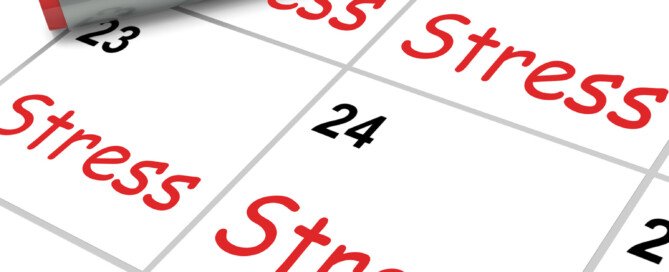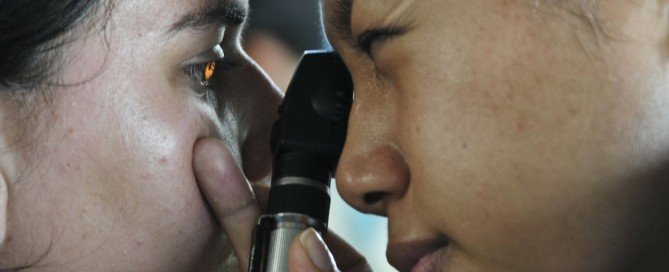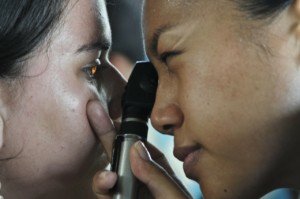Is It Ever Normal for a Child to Have Mild Night Sweats?

Though it’s normal for children to have mild night sweats in most cases, there are several key things to look for that will raise a red flag that the sweating is being caused by a serious illness. (more…)
Why Do Infants Sleep with Their Butts Up in the Air?

Why do infants’ butts stick up while they sleep on their stomach, being that this peculiar position would be impossible for any adult or even toddler to sleep through? (more…)
Is It Safe for a Baby to Be in a Hot Tub?

Many people have babies and many people have hot tubs.
But the combo of a baby in a hot tub can mean death to the baby. (more…)
What that Orange Gunk in Your Baby’s Urine Is

Have you discovered orange gunk or goop in your baby’s diaper?
Is this completely normal or a sign of an infection or other medical condition?
“Newborns may have dark urine that looks thick on the diaper, with a pink or orange tint,” begins Dr. Lisa Lewis, MD, a board certified pediatrician in Fort Worth, Texas, and author of “Feed the Baby Hummus, Pediatrician-Backed Secrets from Cultures Around the World.” (more…)
Why Does a Baby Make Gasping Noises when Sleeping?
Does your baby make gasping noises during sleep?
Perhaps these gasping noises are being picked up by the baby monitor. Or maybe you hear them only when you are right beside your baby.
It’s important for parents to become very familiar with what their baby’s breathing sounds like during sleep.
- What is your baby’s normal?
- Are you familiar enough with the normal to recognize when there’s been a change?
How Babies Breathe
“Babies breathe in a pattern called periodic breathing which occurs when they are sleeping,” says Dr. Lisa Lewis, MD, a board certified pediatrician in Fort Worth, Texas, and author of “Feed the Baby Hummus, Pediatrician-Backed Secrets from Cultures Around the World.”
Dr. Lewis explains, “The baby breathes slowly, pauses for a few seconds, and inhales air. The inhalation may sound long like a gasp.
“Some babies may have trouble swallowing saliva at night and make a gasping noise. The baby will make a loud noise that sounds as if inhaling air.
“Some babies make a gasping noise with a squeak, which can be from a floppy vocal cord.
“Babies often take occasional large breaths while sleeping to keep their smaller airways open.
“Any complaint of gasping should be discussed with the doctor. A true gasping noise with distress or grunting is considered an emergency, and the parent should seek immediate care.”
If you do not have a baby monitor, then get one. In the meantime, if your baby makes what you’d describe as gasping sounds while sleeping — and you have not had a pediatrician examine your baby — then you absolutely should make an appointment.
Chances are, there will be nothing serious found in the exam. But at least if that’s the case, you will have peace of mind.
When putting your baby to sleep, make sure that any blankets, coverings or pillows cannot end up in a position that might block their nose or mouth from taking in air.
Having 25+ years’ experience, Dr. Lewis completed her pediatrics residency at Texas A&M University Health Science Center, Scott and White Memorial Hospital. For two years afterward she was assistant professor in the department of pediatrics at Texas A&M University Health Science Center.
 Lorra Garrick has been covering medical, fitness and cybersecurity topics for many years, having written thousands of articles for print magazines and websites, including as a ghostwriter. She’s also a former ACE-certified personal trainer.
Lorra Garrick has been covering medical, fitness and cybersecurity topics for many years, having written thousands of articles for print magazines and websites, including as a ghostwriter. She’s also a former ACE-certified personal trainer.
Why Your Baby Smells Like Cheese but Doesn’t Eat Cheese
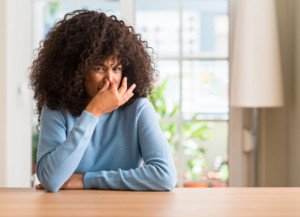
A lot of women report that their baby stinks like cheese even though the baby never eats cheese. (more…)
How to Make Walking for Fitness Fun for Your Kids

Young kids can have fun walking while you secretly get them fit. Here are several great tips on how to get even the youngest child enthusiastic.
Kids like to hear “have fun” rather than “get fit.” (more…)
Does Better Parenting Mean Less Obesity in Children?

Is obesity in children more about genes or bad parenting?
The following seems to true: Parents who seriously work out and watch what they eat rarely have obese kids.
And it also seems as though nearly every obese child’s parents are also quite heavy, or if they’re not overweight, they appear very out of shape from a fitness standpoint.
Big Kids: Fat Genes or Irresponsible Parents?
Arizona State University’s Dept. of Psychology researchers want to investigate this situation, to see if improved parenting skills might have a redeeming effect on weight control in kids.
- Seventeen percent of American children six to 11 are obese.
- Nine percent ages two to five are obese.
- The U.S. is chockful of opportunities for physical activity. There is no shortage of courts or athletic programs for children.
Rich Kids, not just Poor, Are Obese
Though obesity is more common in kids from low-income households, don’t forget that it’s more expensive to eat large quantities of cheap junk food than portion-controlled amounts of healthy foods.
Budget-conscious parents don’t need to buy pricey bottled water, gourmet tuna plates or organic blueberries to prevent obesity in their children.
Cady Berkel, associate research professor of psychology, and Justin D. Smith, assistant professor at Northwestern University, are the lead investigators of the Family Check-Up 4 Health program.
Berkel and Smith are reaching out to kids two to eight to receive the FCU4Health’s integrated primary care and behavioral health services.
“The FCU4Health program is a unique childhood-obesity prevention program because it focuses on the parents to reach the kids,” explains Berkel in a press release.
How the Program Works
An onsite health coordinator meets with the parents and kids.
The parents are taught skills that will help them apply a pediatrician’s advice.
An example of a skill would be refusing to give a temperamental child ice cream to quiet her down.
Another parenting skill that’s taught is that of setting limits on screen time.
The USDA is funding the five-year, $2.5 million intervention which began in 2018.
Changes Parents Can Make to Correct or Prevent Obesity in Their Kids
“The best time to start working on obesity prevention is as early as possible!” says Dr. Lisa Lewis, MD, a board certified pediatrician in Fort Worth, Texas, and author of “Feed the Baby Hummus, Pediatrician-Backed Secrets from Cultures Around the World.”
“Ideally, breastfeeding an infant and starting unprocessed, healthy foods as purees when the baby begins to eat helps promote healthy lifelong habits.
“But, don’t despair — parents can start healthy habits for their family at any age. Healthy habits for the children are beneficial for the entire family.
“For children who are sedentary, I recommend starting exercise as a family.
PE in school 2-3 times per week is good, but often does not promote the exercise needed outside of school.
“Most children will not enjoy exercise if ‘forced,’ so make the activity enjoyable.
“A good start would be evening walks at least five times per week. Look for fun activities like playing in the park, nature hikes or swimming.
“The first step for healthy eating is to remove unhealthy foods from the home. Foods such as processed sugar, complex carbohydrates and unhealthy fats are eaten less when not available.
“Stop all sugar drinks, unless the child is having one as an occasional treat.
“Instead of focusing on what a child ‘can’t have,’ focus on the good foods available.
“A diet high in fiber is good for the body and helps prevent hunger, so ensure the child eats plenty of fruits, vegetables, beans and whole grains.
“Dairy is important for a growing body. The two best drinks are milk and water.
“Add protein in the form of lean meats, eggs and nuts (nut pastes if the child is less than six to prevent choking).
“A child does need carbohydrates, but they should be given in moderation. For example, many children love crackers but they shouldn’t be eating them all day.
“Again, an occasional ‘unhealthy’ treat is not detrimental. If a child feels the family diet is too restrictive, they are likely to sneak food outside the home, such as at school or a friend’s house. This is not healthy behavior and can lead to binge eating.”
If you’re inclined to blame childhood obesity on genetics — ask yourself how many of the above ground rules you’ve been adhering to.
Having 25+ years’ experience, Dr. Lewis completed her pediatrics residency at Texas A&M University Health Science Center, Scott and White Memorial Hospital. For two years afterward she was assistant professor in the department of pediatrics at Texas A&M University Health Science Center.
 Lorra Garrick has been covering medical, fitness and cybersecurity topics for many years, having written thousands of articles for print magazines and websites, including as a ghostwriter. She’s also a former ACE-certified personal trainer.
Lorra Garrick has been covering medical, fitness and cybersecurity topics for many years, having written thousands of articles for print magazines and websites, including as a ghostwriter. She’s also a former ACE-certified personal trainer.
.
Top image: Gaulsstin, CreativeCommons
Source: newswise.com/articles/view/696917/?sc=sphn
Natural & Realistic Ways to Lower Cortisol, the Stress Hormone
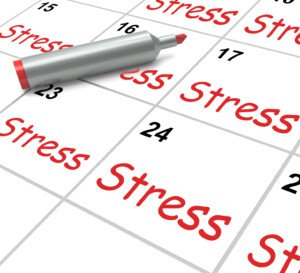
Not everyone can get a dog or magically conjure up heavenly relationships to fight stress, so here are 6 REALISTIC ways to lower cortisol, the “stress hormone.”
One of the key tactics in lowering the amount of circulating cortisol in your body is to lower the amount of stress in your life, says Susan L. Besser, MD, with Mercy Medical Center, Baltimore; Diplomate, American Board of Obesity Medicine and board certified by the American Board of Family Medicine.
“Obviously, lowering external stressors will help,” says Dr. Besser. “It’s mostly lifestyle changes.”
If you subscribe to the following six realistic and natural approaches, you can lower the amount of this stress hormone in your body.
Better Management of Stress to Lower Cortisol
This is easier said than done, but practice makes nearly perfect. Ask yourself, “Is being late for an appointment really going to alter the course of my life?”
For things that you get worked up over, ask if you can control them. You can’t control traffic jams, but you CAN leave the house a little earlier.
You can also ask the shmuck at work, whose constant singing is grating at your nerves, to cut back on the habit.
Your new game plan is to act, rather than secretly seethe and stress out. Secret seething is bad for cardiovascular health and contributes to elevated cortisol levels.
So does this mean take a hammer to the incessant singer? No. But take your voice to that person.
The ding-a-ling may still keep singing, but you will have removed the anxiety that comes with continuously wondering if you should say something.
During stressful moments, focus on deep breathing. Dr. Besser recommends meditation, which you can do at home during periods that you won’t be interrupted.

Freepik.com
And have some fun, too, while distracting yourself from a momentary stressor. For example, while waiting in slow-moving lines, do calf raises or see how many women have hair that’s suspicious for extensions.
A subset of better stress management would be to take up a hobby that requires focus: gardening, painting, learning a second language, buying a telescope and studying the night sky, etc.
Improve Your Sleep Hygiene
Better sleep is a great realistic way to help lower cortisol levels. Try to go to bed at the same time every night, and in a completely dark room if possible (blackout curtains will help).
Reserve your bed strictly for sleep and intimate relations. Do not read, use your phone, eat or do puzzles in bed or otherwise make your bed a conditioned stimulus for mental activity or stress.
Improve Your Diet
- Replace sodas and juices with water as much as possible.
- If you want chocolate, eat a solid bar rather than a cupcake or donut.
- Reduce sugar intake. Freshly prepared salads at Whole Foods, for instance, often contain added sugar! Bet you didn’t know that. Prepare salads like chicken, tuna, pasta and vegetable at home.
- Make a concerted effort to eat seven servings a day of any combination of vegetables (fresh from the produce section) and fruits.
Tabata or HIIT
Now, here’s something you need to really pay attention to when it comes to naturally and realistically lowering cortisol.
- Long-duration, slow cardio does not raise cortisol.
- Medium intensity aerobics raises cortisol. This is a problem. Medium intensity is sustainable but uncomfortable and forces heavy breathing.
- High intensity aerobics raises cortisol too. HOWEVER…high intensity also unleashes human growth hormone AND testosterone: two natural opponents of cortisol!
Thus, medium intensity cardio is the problem, not high intensity. The definition of high intensity is that which you cannot sustain for longer than about 30 seconds.
You don’t quit after 30 seconds because the timer says so. You quit after 30 seconds because your body simply cannot go a second longer.
The natural cortisol opponents will continue circulating in your body after the high intensity exercise is finished.
Tabata is 20 seconds ON of all-out effort (running, jumping, hill dashing, staircase dashing, pedaling) and then 10 seconds of very casual pacing. The 20/10 cycle goes for just four minutes – and then you’re done!
High intensity interval training (HIIT) would be 30 seconds of all-out effort with a few to several minutes of casual pacing in between for a total of half an hour.

Avoid Nighttime Caffeine
Enjoy your chocolate or coffee earlier in the day. This will have an indirect effect on lowering cortisol because caffeine can interfere with sleep.
Reducing the Stress Hormone Cortisol in Your Body
“There is no one simple answer,” says Dr. Besser.
It’s important that you strive to implement at least five of the above practical and realistic approaches.
“There are no ‘magic pills’ or herbals that lower cortisol.”
 Dr. Besser provides comprehensive family care, treating common and acute primary conditions like diabetes and hypertension. Her ongoing approach allows her the opportunity to provide accurate and critical diagnoses of more complex conditions and disorders.
Dr. Besser provides comprehensive family care, treating common and acute primary conditions like diabetes and hypertension. Her ongoing approach allows her the opportunity to provide accurate and critical diagnoses of more complex conditions and disorders.
 Lorra Garrick is a former personal trainer certified by the American Council on Exercise. At Bally Total Fitness she trained clients of all ages for fat loss, muscle building, fitness and improved health.
Lorra Garrick is a former personal trainer certified by the American Council on Exercise. At Bally Total Fitness she trained clients of all ages for fat loss, muscle building, fitness and improved health.
Understanding and Dealing with Astigmatism
What is Astigmatism?
Astigmatism is a common vision problem which is caused by an error in the shape of the cornea.
Astigmatism occurs when the front surface of the eye which is the cornea or the lens of your eye has an irregular curve. (more…)




